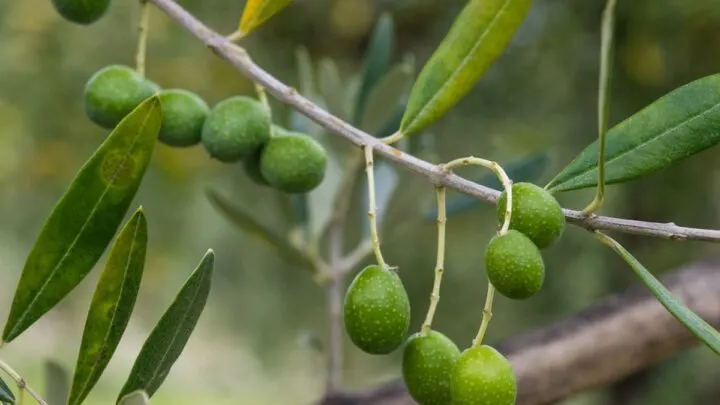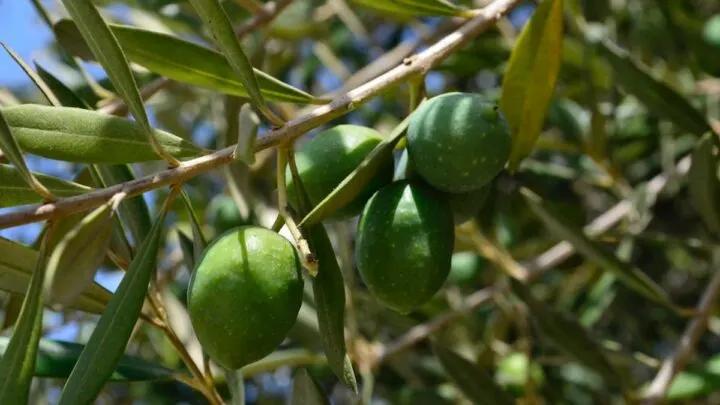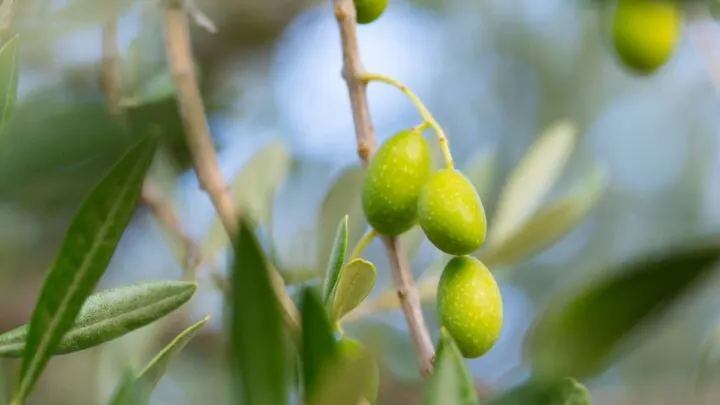Olive trees are robust plants that can be valuable to your landscape or garden for their fruits and utility. Olive trees are productive for up to 65 years and can live for 500 years on average. To keep your olive tree productive and healthy for many years, it’s of utmost importance to have the right compost for olive trees.
A multipurpose compost contains a blend of lime, fertilizer, and peat for an optimal mixture of pH balance and nutrition suitable for most plants, including olive trees.
Ericaceous compost can also be helpful in soils higher on the pH scale, though it should be used sparingly under these conditions.
Continue reading to learn more about olive trees and tips on keeping them growing well for the decades to come.

What kind of soil do olive trees like?
It’s essential to start your multi-generational olive tree off on the right foot and use the proper soil from the beginning of its life. The first few years are critical for its establishment and development, but after this, they are a very easy and tolerant species to have growing in your garden.
Like many plants, olive trees enjoy well-draining soils, but they go a bit further than that and can thrive in rocky soils. The key is to keep your olive tree’s roots from getting waterlogged, as this is one of the easiest ways to kill any plant. Aside from that, almost any soil type goes, and your olive tree will still be a productive member of your garden.
Compost and mulch can keep the soil around your tree nutrient-rich and protect the roots from overly-moist conditions.
Take care not to allow the compost or mulch to touch the tree trunk; this can lead to root damage, such as a girdling root, which is often not evident for years to come. It can also suffocate the tree, leading to irreversible damage.
Too much of any good thing can be bad, so don’t over-fertilize or pile up the mulch too high. Moderate or weak fertilizer applications throughout the growing season are better for your plant than a single, heavy dose.
A few inches of mulch, spread out evenly across the soil atop your tree’s roots, will provide a layer of protection from excessive moisture and temperature swings and even protect your plant from soil bacteria or fungi that can infect your plant if splashed onto the trunk or leaves.

Is ericaceous compost okay for olive trees?
Olive trees are hardy and long-lived for a reason. They’re not incredibly picky and can tolerate many different soil conditions. Therefore, it’s no surprise they have a wide range of pH levels they can thrive in, from 5.5-8.5.
Ericaceous compost can work well for your olive tree, especially if your soil is naturally neutral to alkaline. However, you may want to stick with regular compost if your soil is near 5.5-6.0. Even though olive trees are quite hardy and tolerant, too much acidity in the soil can lead to adverse effects and stunted growth.
If you notice your plant has stunted growth, yellowing leaves, or sudden leaf death, testing the pH of the soil can be a good starting place to begin ruling things out. If your plant is in the proper pH range, you can assume you either need to give your plant a boost in nutrients or adjust your watering schedule.

What is the best fertilizer for olive trees?
Farming requirements are no different due to the ease of care for the olive tree.
A balanced NPK fertilizer such as a 10-10-10 or 16-16-16 is sufficient for an established olive tree. Young olive trees also appreciate a balanced fertilizer, though in weaker doses. Avoid slow-release fertilizers for young plants, and always water well after a liquid fertilizer application.
Fertilize from March to July for best results; fertilizing twice a month throughout the growing season using weak applications can ensure your plant has a steady supply of nutrition without risking over-fertilization and the complications that come along with that issue.
Use a fertilizer containing micronutrients, if possible, to avoid nutrient deficiencies causing issues later in your plant’s life. Other ways to ensure your plant is getting the micronutrients needed include compost, such as leaves or grass clippings, or by using the aforementioned multipurpose compost layered on top of your soil.

Tips for growing a long-lived olive tree
An olive tree can be a plant in your family for generations, so treating it well from the beginning can set it up for a long, productive future.
Aside from the soil parameters mentioned above, placement is the other crucial component. Like most fruiting plants, there needs to be sufficient sunlight so your plant has the energy to flower and produce fruit. Plant your olive tree in a bright area free of shade to guarantee your plant gets at least 6 hours of direct light per day.
For a new, establishing tree, keeping the roots moist (but never soggy) is of supreme importance. Water your establishing tree up to three times a week for the first six months of its life. This will ensure your plant can grow a deep, vigorous root system supporting significant growth and development above ground.
Avoid pruning your tree until its second year, when you can start shaping it to your desired appearance. Note that it’s important to never take off more than 25% of your plant’s growth at a time. This means it can take a few years to reach the optimal shape, but it will be worth it since you won’t have to start all over again due to an over-pruned and damaged tree.
Final Thoughts
It’s no wonder olive trees are symbolic of peace: these plants are low-maintenance, provide a versatile fruit, and can live for centuries.
Starting the tree by giving it the right soil, compost, and light it needs can set up your tree for many successful harvests in its future. Once its productive year’s end, it will remain a beautiful source of shade and provide memories of its fruitful harvests.

Hi there, my name is Allie and welcome to my blog; GareningWithAllie!
Much of what you see written here is just our personal experiences with gardening. Along with the content I write here, there is also a unique collection of gardening topics covered by some of our close friends. I hope you find everything you read here to be helpful, informative, and something that can make your gardening journey the most lovely experience ever! With that said, Happy Gardening!
